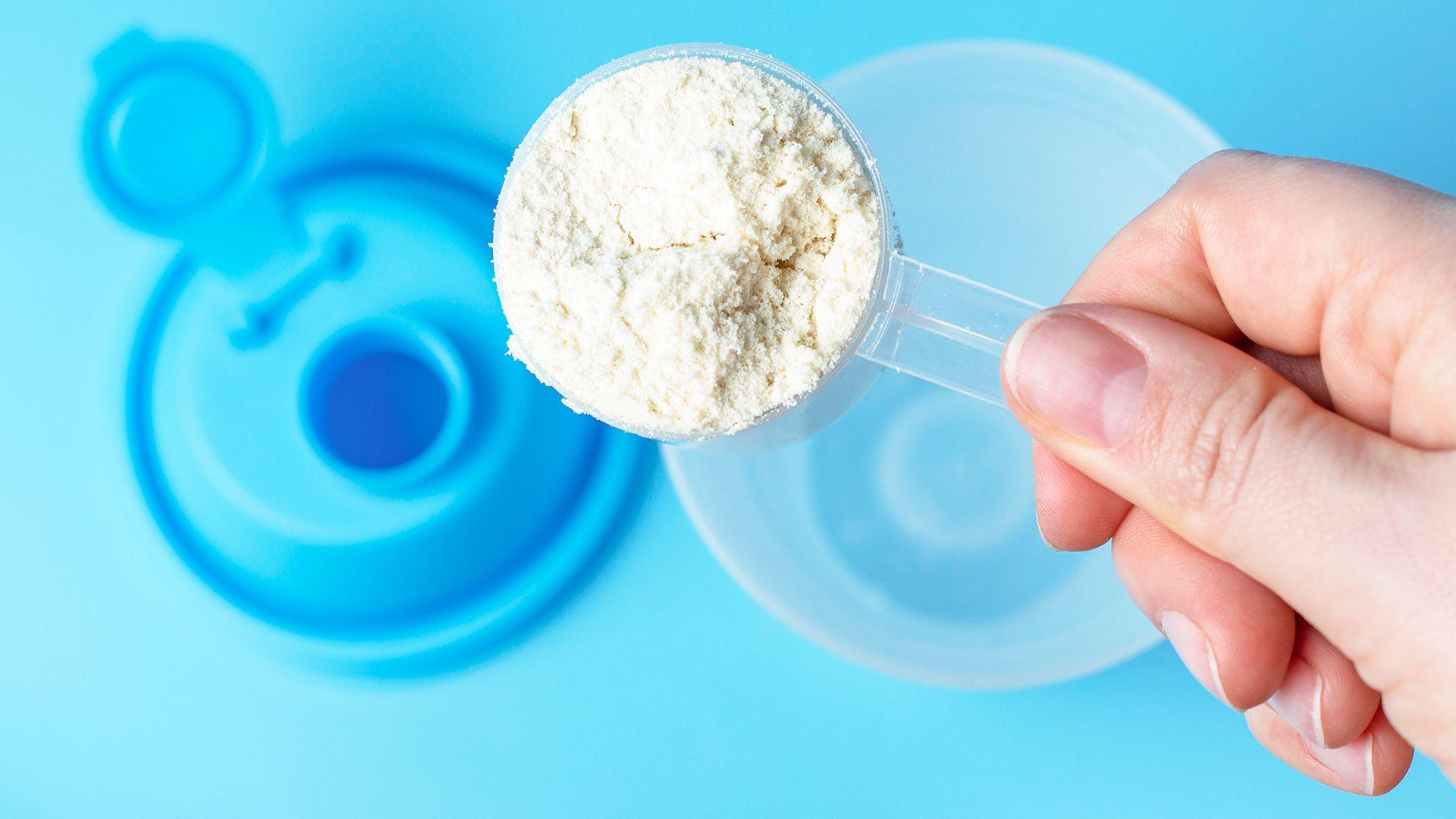Magnesium: Can this 'miracle mineral' really help us sleep?
- Published

It's been described as the mineral of the moment.
Millions of us are taking magnesium for a whole range of reasons. Can it help us sleep better? Sort our digestion problems? Give our busy brains a moment of peace?
In the fast-moving world of supplements, it's magnesium's time to shine.
And the industry is booming. The global magnesium market is worth almost £3bn and that's set to nearly double over the next decade.
In a small factory, nestled in the Yorkshire Dales, huge plastic barrels of white powder are stacked up next to giant whirring machines.
Workers in hazmat suits carefully weigh out magnesium citrate - a compound made by mixing the mineral with citric acid - into shiny, steel containers.

Millions of magnesium tablets are produced in this factory every day
"We are sending our supplies all over the world," Andrew Goring, manager director of Lonsdale Health, explains. "Around the UK, obviously, but also to Australia, parts of Asia, Kuwait, Iraq.
"It's one of our biggest sellers and the market just keeps growing."
He is shouting over the hum of the pill presser, a machine that resembles a Dalek, which pops out dozens of small, white magnesium tablets a second.
"Do we actually need it?" I bellow back. "And why now? Why has it become so popular?"
"Influencers, social media - that's what's pushing it," Mr Goring explains. "We've known about magnesium and its benefits for years and now, finally, it's mainstream."
I can almost hear the eye roll when I contact Kirsten Jackson, an IBS Dietitian, who specialises in gut health.
"Clever marketing schemes," Ms Jackson says, "magnesium is involved in areas people are willing to invest in: their sleep, digestion, mental health."
But, she is keen to stress, this does not automatically mean we need supplements to improve those things.
Magnesium is one of several minerals in our bodies. The recommended daily amount, external for women is 270mg and for men, it's 300mg. We store about 25g.
It might make up less than 1% of us but "it is involved in over 300 different processes", Ms Jackson explains.
It is "especially important for our brain and mood," she says, because it helps nerves send messages properly and supports the building blocks of brain cell membranes.
It also helps balance blood sugar levels, regulate blood pressure, and is an essential player in moving calcium and potassium in and out of our cells, which maintains the rhythm of our heartbeat.
So, surely popping a pill full of the stuff should keep our bodies running smoothly?
It's more complex than that, says Ms Jackson. For a magnesium supplement to work, we need to be lacking the mineral in the first place - and it's difficult to test for any deficiency because the vast majority of our magnesium is stored in our bones and tissues.
But on an individual level, many say the supplement has made a difference.

Katie says magnesium supplements have helped improve her sleep and calmed her racing thoughts
For Katie Curran, a communications specialist who has worked with some of the biggest fashion brands, sleeping well was something she could only dream about.
"A year ago, I was struggling," she confides. "It would take so long to get to sleep, my brain was racing, and then I would get off only to wake a couple of hours later."
Katie decided to try magnesium glycinate - a combination of magnesium and glycine, an amino acid with limited evidence , externallinking it to better sleep.
After two weeks of taking 270mg a day, she says the noise in her head started to quieten. The racing thoughts slowed down, and she began to feel like she could function again.
"My sleep definitely improved, I had more energy. I became more active. Other things changed in my life, so I can't put it down to just one thing, but I think the magnesium supplements were an important part of the puzzle."
While being deficient in magnesium can definitely affect sleep patterns, there isn't the evidence to say taking supplements will definitely improve your sleep.
Social media is awash with eager supplement-takers, many with posts stamped with "commission paid" in the corner - meaning they could earn money from their story or reel.
According to these influencers, it feels as though there is little magnesium can't help with, as they recommend a variety of different products.
Magnesium is often mixed with other compounds with the aim of helping support various parts of our bodies. For example, magnesium mixed with either L-threonate or glycinate is supposed to target brain health, which helps with sleep and stress relief.
If magnesium is combined with chloride, it is recommended for muscle tension and pre-menstrual cramps, while citrate and oxide blends are aimed at digestion and help with constipation.
The majority of us can probably relate to having at least one of those issues. But as nutritionist Kristen Stavridis stresses, the problem is there is not enough strong evidence to show the majority of these different magnesium supplements have a positive effect on the healthy population.
And even if they did - we would need to be deficient in magnesium in the first place to see a benefit.
"We have supplement companies shouting out at us: 'We are all going to die'," Ms Stavridis says, "'Quick! Take my pill and - hey presto - there's your solution'.
"Many of us are not getting enough magnesium," she continues, "around 10% of men and 20% of women are not getting the recommended daily intake, external.
"But just taking a supplement is not the answer."

Seeds, nuts, whole-grain breads, greens and fruit are all rich in magnesium
Take sleep health, for example. Ms Stavridis says there are many conflicting studies on whether magnesium supplements really make a difference. Some trials say it can have some benefits, while some randomised controlled trials - the gold standard - are more sceptical.
There is also the added complication of supplements potentially working against each other because of the way they interact in the body.
Taking zinc, for example - a supplement often recommended for peri-menopausal women - can also affect the absorption rate of magnesium., external
Basically, Ms Stavridis says, it's a minefield, and not just a simple case of "take this" and you'll be fixed.
She recommends looking at diet first. But if you are thinking about taking magnesium supplements, Ms Stavridis advises taking half the amount recommended on the packet on a daily basis and seeing how you feel.
If healthy people take too much, their kidneys can get rid of it in "expensive urine", but there are still risks, like diarrhoea, vomiting and nausea.
For those with kidney disease, taking magnesium supplements can be dangerous and can cause hypermagnesemia - a potentially life-threatening condition that can leave someone with paralysis or in a coma.
Dietitian Kirsten Jackson also says most people should "100% look at diet first".
Foods like seeds, nuts, whole-grain breads, greens and fruit are good sources of magnesium, she says.
She warns that if you don't regularly consume these types of foods, you're probably also short of other essential nutrients like vitamin C, vitamin K, fibre and prebiotics too.
"One magnesium supplement is not going to sort all that."
Related topics
More weekend picks
- Published22 June

- Published21 September

- Published27 September

